INTERVIEW. Palina Sharenda-Panasyuk: Many People Boiled Over
- 20.02.2018, 14:57
- 14,194
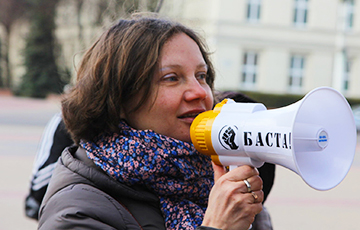
Belarusians start speaking out not only in their "kitchens".
Palina Sharenda-Panasyuk is a well-known Brest activist of the European Belarus civil campaign. This brave woman takes part in many political events; she has become one of the leaders of protests against the scandalous decree on "spongers". The website Charter97.org has decided to learn more about this woman.
- Please, introduce yourself. Where were you born? Where did you take studies and work?
- I was born in Minsk. But since I was six years old I have been living in Brest. I graduated from the History Department of the Brest State University in 1998.
- Did you exercise your profession?
- In 1998 the dictatorship started gaining strength in Belarus. When I was about to graduate from the university, I started participation in a political life of the country.
I had a chance to exercise my profession in the lyceum class. It was a branch of the Minsk Belarusian Lyceum. Unfortunately, a year later it was closed down. Then I tried to find a job, but was openly said that I would fail with job placement in Belarus. And I have devoted my life to politics and I have been engaged in it until now. And I do not regret it.
- It's the decision which requires courage. How did you decide to go in for politics?
- You know, many opposition figures followed their families in footsteps. My story differs. A part of my maternal family comes from Western Belarus. In 1948 the main part of the family- eight people - was exiled to Kazakhstan. Their property was confiscated. Only my grandmother left in Belarus.
These tragic events caused fear to be noticed. They only whispered their opinion, because repressions were alive on their minds.
You know, that my active life position is like redemption for passive position of my ancestors.
As far back as I can remember, I've always been a peculiar person. I have always been interested in politics. I met my childhood during the last years of the USSR. I remember the wave of publicity in the mid-1980s: there were alternative radio programs, one could find books not affordable before.
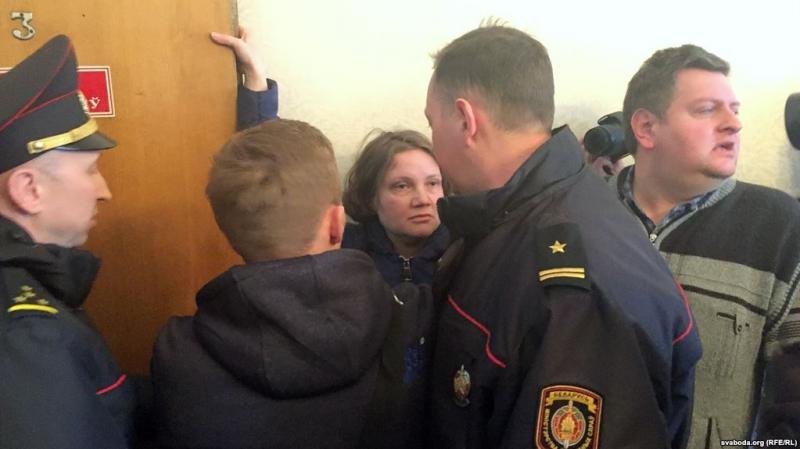
When the USSR collapsed in 1991 and then the independence of Belarus was proclaimed, I was happy to hear that. I rejoiced that we had our own state to work for. After events of 1993-1994 it became clear that it was not as bright as it seemed before. Belarus became the ground for the revenge of the pro-Soviet forces.
As a result, patriots strove for seeking of like-minded people. I knew there were a lot of such people after the legendary Chernobyl Shlyakh of 1996.
In 1997 I joined the Belarusian People's Front in Brest. I was frozen then, but a new wave of the young promoted its further development. We managed to self-organize and started putting into practice ideas. We organized bright events and gradually everything settled down. In 2001 I joined Zubr resistance movement, since 2008 I have been the member of the European Belarus civil campaign.
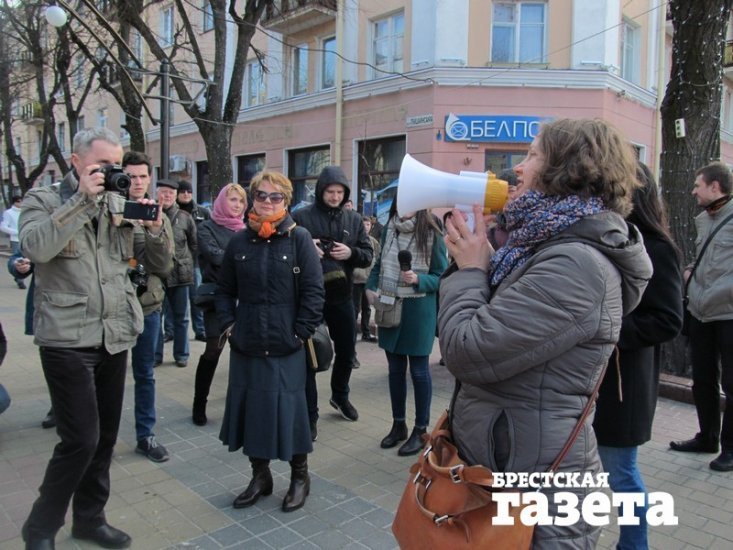
- You've mentioned bright events. What was the most prominent, in your opinion?
- I still remember one of the first events. We reprinted colorful "Pahonia" and within the night almost the entire city was pasted up with them. I remember that 10-15 years later I witnessed some of them on buildings. They were pasted up so hard that survived until now.
- Palina, what does give you strength to keep on fighting?
- I am convinced that this is what I am designed for. This is my passion; I make myself comfortable here.
The situation in Belarus is not an exception. Many countries experienced a dictatorship, but they always had resistance and the spirit of struggle. And Belarusians who are involved in politics love our country and are patriots. Unfortunately, our objective - to make Belarus a democratic state - has not been reached yet. But we keep fighting unless we win in order to let our children live a better life.
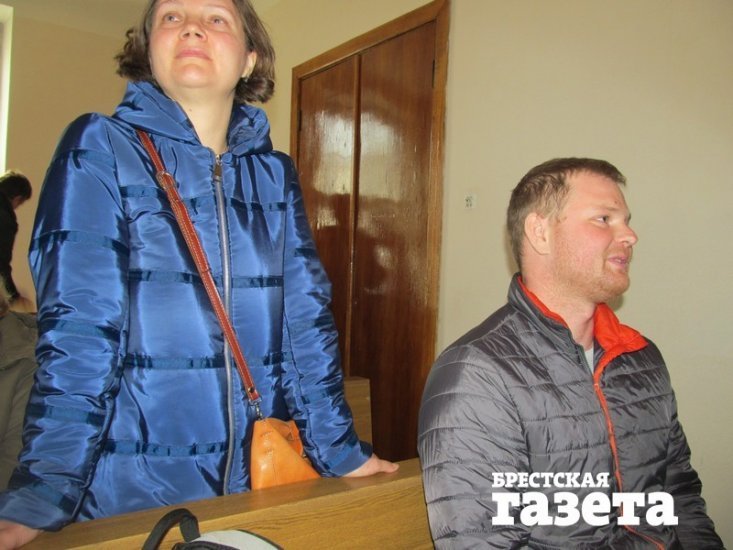
- By the way, about children. You have two sons.
- Yes, I have. The older one is 9 years old, the younger is 2 years old.
- What do you instill in your children?
- I instill in children patriotism, love to the Motherland. My husband (Andrei Sharenda - well-known activist of the European Belarus - editor's note) and I gave our sons Belarusian names. The older is Slavamir, the younger is Stakh. By the way, Stakh was born on Freedom Day in 2016.
As far as it possible in current conditions, we try to breed our children as patriots, real Belarusians. Although our older son goes to Russian-speaking school, we speak Belarusian at home. It's a great problem to find a Belarusian-speaking school in Brest. We try to explain and tell our children about things in the country. We go in for tours, meet other activist families of Brest, organize events for children.
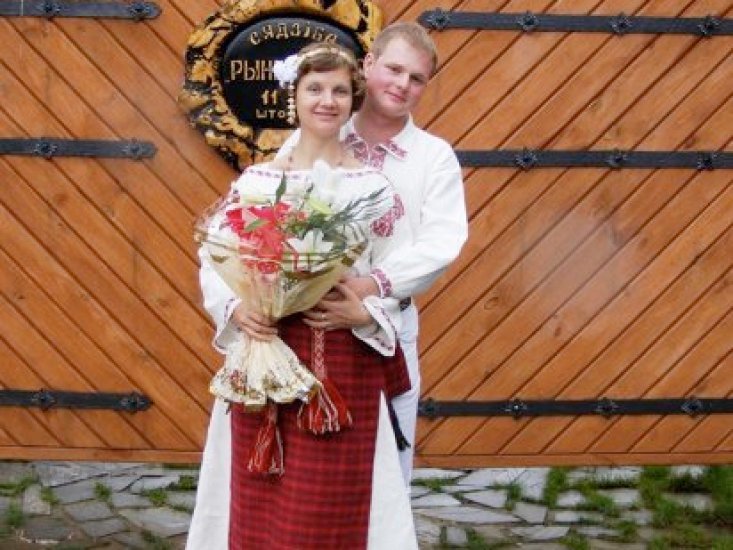
- The language problem is not a secret in Belarus. How did it happen that you turned to the Belarusian language?
- Here I must turn to my childhood. When I was a child, I spent some time in a village, everyone there was speaking Belarusian. Of course, it was an ordinary Belarusian. I have heard this language since my childhood. I leaned something about Russian only when I went to school.
So I can easily refute the statement that "all Belarusians are Russian-speaking". In our country the Russian language is imposed. And the understanding of the language situation made it clear to me how to start speaking Belarusian. Unfortunately, I can't speak the Belarusian of my grandmothers, but it was easy for me to learn the Belarusian and speak it.
It was not the one-day decision. I was made after a while.
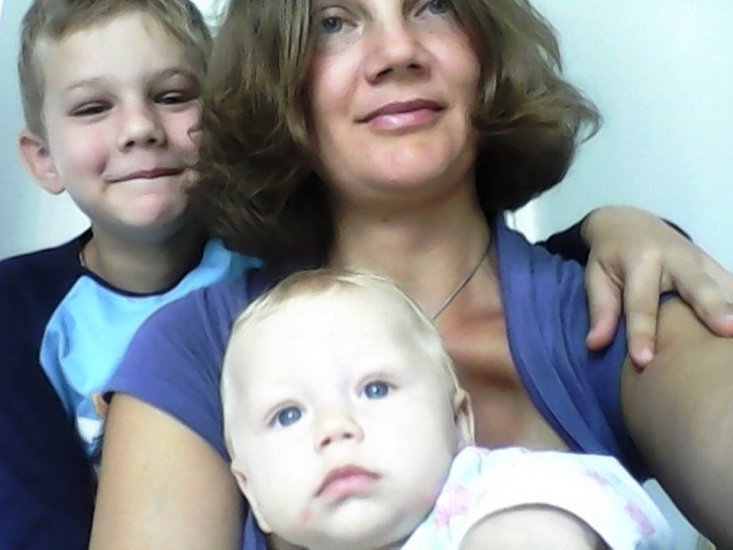
- Who is the role model for you?
- This is Larisa Geniyush (poetess, public figure, prisoner of Stalin camps - editor's note). As is known, she had to leave the USSR after the Second World War.
But she did not accept the USSR passport which served her with at least minimal rights. It proves how persistent the person was in her struggle with the system and how she adhered to her ideals.
Larysa Geniyush was ready to devote her life and health to her ideals. In my opinion, it indicates persistance to adhere to one's principles.
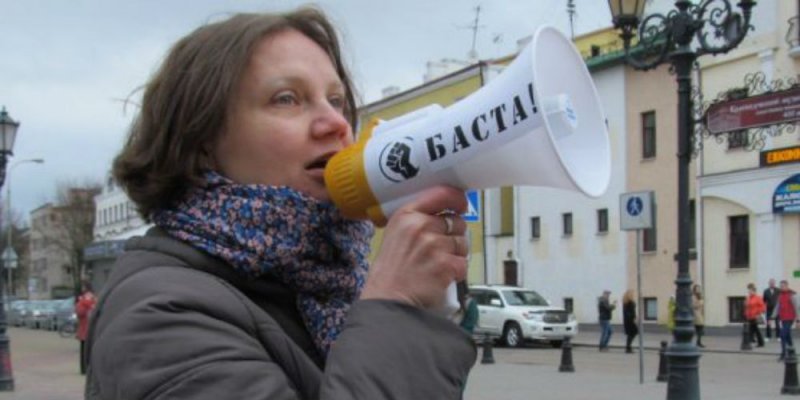
-In the spring of 2017, the whole Belarus rose against the scandalous decree on "spongers". You were an active participant of protest actions. Why did you stand out?
- Yes, I took part in them. You know, all people who came there were really brave. They voiced things many politicians are still afraid of thinking about. Ordinary people stood up, politicians, speaking frankly, were bleak.
I remember Brest anarchists, fellows and girsl, who managed to lead several thousand protesters. Their energy and organization were impressive.
That spring proved that people could self-organize. They boiled over. People came to speak up, and that was really impressive.
- Will you share your plans for future with us?
-In the long run, I would like to live in a normal country. With an adequate person in power, state institutions. Now, unfortunately, when I go for a walk I feel like this city is under occupation. Let it sound banal, but I speak sincerely. You read street names: "Dzerzhinskogo", "Sverdlova" and you geographically live in Belarus, but you feel like living in the country for KGB, Soviet pensioners. And I would like to live in a normal country.
- This year we celebrate the significant date - the 100th anniversary of BPR. What does this date mean to you?
- First of all, this date is the restoration of independence of Belarusian lands after the occupation of the Russian Empire. The proclamation of BPR in 1918 was an attempt to restore independence, which, infortunately, failed under those conditions. The project was not fully implemented.
But, first, it showed that the idea of independence restoration had some ground. Each generation of Belarusian, Litvins chose freedom. The independence proclamation 100 years ago was grounded on uprisings and struggles of Tadeusz Kosciuszko, Kastus Kalinouski and on other significant events.
Second, the proclamation of BPR showed how many talented and brave people were among Belarusians. People involved in events of 25 March 1918 stood up unless the Second World War. They gave way to events which existed in the postwar period. I mean the Belarusian Regional Defence. In fact, we pursue the struggle of those people who gave an impetus to realize ideas of independence.
By the way, I'd like to express my solidarity with "Charter-97". I have been reading this independent website for a long time.
In my opinion, there are many factors which have caused the blocking. Russia is one of them. It tries to block access to alternative information. And the Belarusian authorities are afraid of a new protest wave. The regime has run dry. In the information regard, it faces deadlock. they just want to block information, but it's waste of time.
There is a great opportunity for Europeans to express solidarity with Belarus and "Charter-97". I'd wish they could serve with real assistance.
Charter97.org's Information
Palina Sharenda-Panasuyk was born on March 21, 1975, Minsk. She studied at secondary school No. 24, Brest. She graduated from the History Department, Brest State University, in 1998, as well as the political studies in Warsaw. She was Fellow of the Lane Kirkland program in Poland.
She used to work in the Belarusian Lyceum class, non-state democratic organizations.
Since 2001 she's been an activist of Zubr resistance movement.
Since 2008 she's been the activist of the European Belarus civil campaign.
She's married, has two sons.










